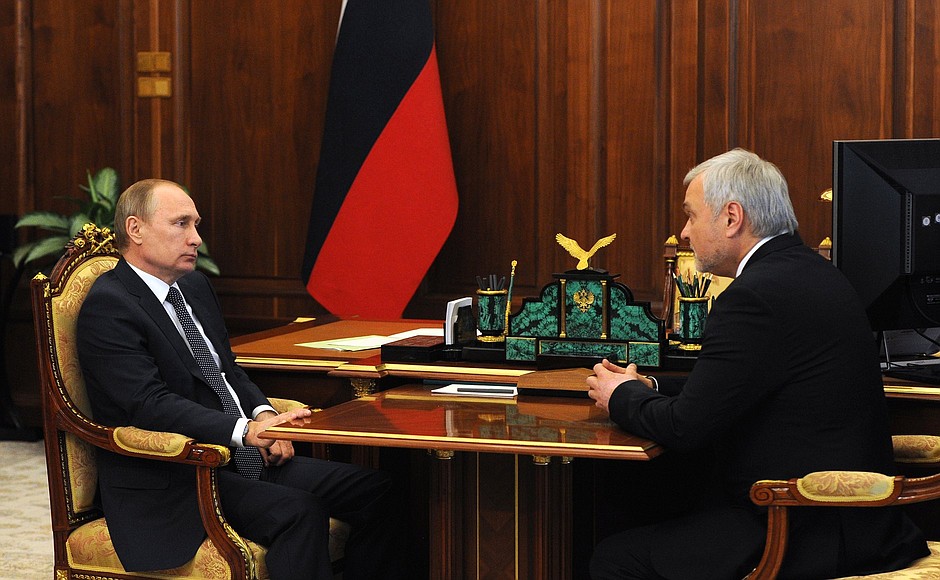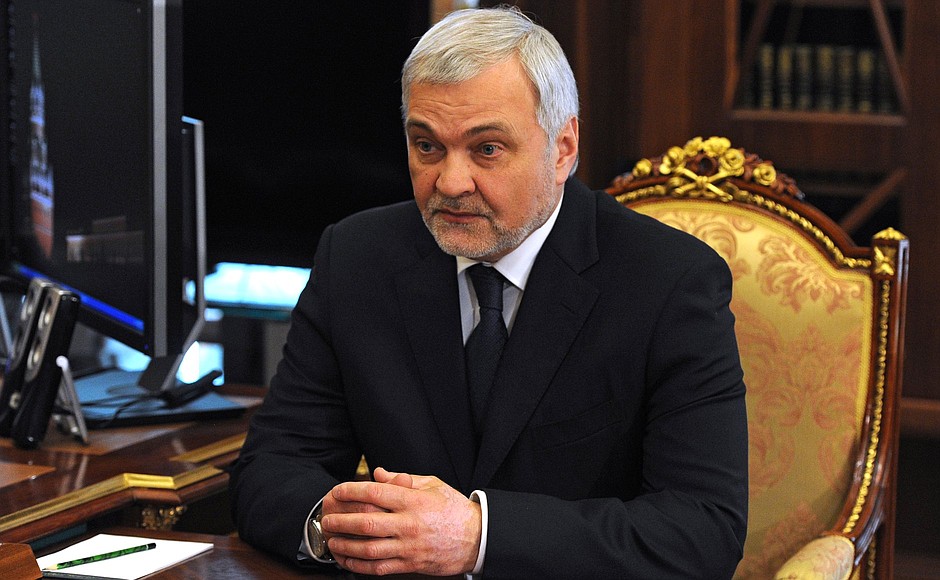President of Russia Vladimir Putin: Mr Uyba, your agency has many tasks, from research to medical support for our top athletes.
Let us begin with the second area, namely the work to get our grand national team ready for the Olympics in Brazil.
Director of the Federal Medical-Biological Agency Vladimir Uyba: Mr President, indeed, ensuring medical-biological support for our Olympic teams, for Team Russia is a great responsibility that calls for complex and systemic work.
We use only clean technologies in organising this medical and biological support. This is a very responsible approach, all the more so as the world evolves and our rivals and partners continue to move forward. We have to make sure we do not lag behind, of course.
We know that technology accounts for half of a world-class athlete’s victory today. This is open technology that helps athletes’ rehabilitation, allowing them to regain their strength after high strain.
A personalised approach is the key today. We cannot apply uniform programmes to the entire team. This approach does not work.
Personalised medicine is a very complex matter. Personalised medicine today is based on the human genome. The genome is essentially our body’s foundation. Whoever possesses genome technology can effectively apply this personalised approach.
Our agency has this potential and these possibilities. We have extensive experience of work on the genome. In addition, the Institute for Physical-Chemical Medicine, which works specifically on genome technology, is currently developing personalised programmes together with some of our other research organisations.
Now, we have developed personalised programmes for the entire team in the run-up to Rio. This is a big undertaking that involves making sure that each individual athlete will be at their physiological peak right at the moment of taking part in these high-level competitions. We have done this work and these personalised approaches are now ready for the team.
Vladimir Putin: Very good. I believe this work is based on the results of your research. How is your research going?
Vladimir Uyba: Yes, we have a large amount of research underway at the agency, a lot of scientific support work. I can give you several examples of scientific achievements not only here in Russia but on a global level.
A popular area today is stem cell technology. There is a lot of discussion about the possibilities here. We are not just talking, but also doing things. I can say with full responsibility today that we are the leaders in autologous stem cell transplantation and typing or reproduction of mesenchymal tissue, that is to say, human skin. The practical applications of this research are saving human lives today.
Last year, for example, we had a case of a young man who received severe burns to more than 80 percent of his body. By any count, whether here or abroad, a fatal outcome was certain.
However, by using combined treatment methods, particularly stem cell technology, we not only saved him but also ensured his complete rehabilitation, and he is an able and active young man today and has returned to his job and his family.
This kind of stem cell technology is an amazing thing that we have at our disposal.
Vladimir Putin: Are you managing to commercialise any of this? Do you export anything?
Vladimir Uyba: Yes. In the exports area, following your instructions in 2014, we began a unique biotechnology project to develop a complete closed biotechnology cycle. The result is a vaccine that has already been certified not only here in Russia, but on a global level, by the Pan-American Health Organisation (PAHO), which is the organisation responsible for certifying biotechnology treatments and methods.
We have received the PAHO certificate and by the end of the year, we will open our first full-scale plant in Nicaragua to produce this Russian-made flu vaccine. This is a unique project so far in our practice because we will be exporting biotechnologies based on substances that we have developed ourselves. This is very important.
This project will meet demand not only in Nicaragua. The demand there is not high. It will cover nearly half of the entire Latin American market of flu vaccines. This is a real first and we expect to have it up and running successfully by the end of the year.
<…>

